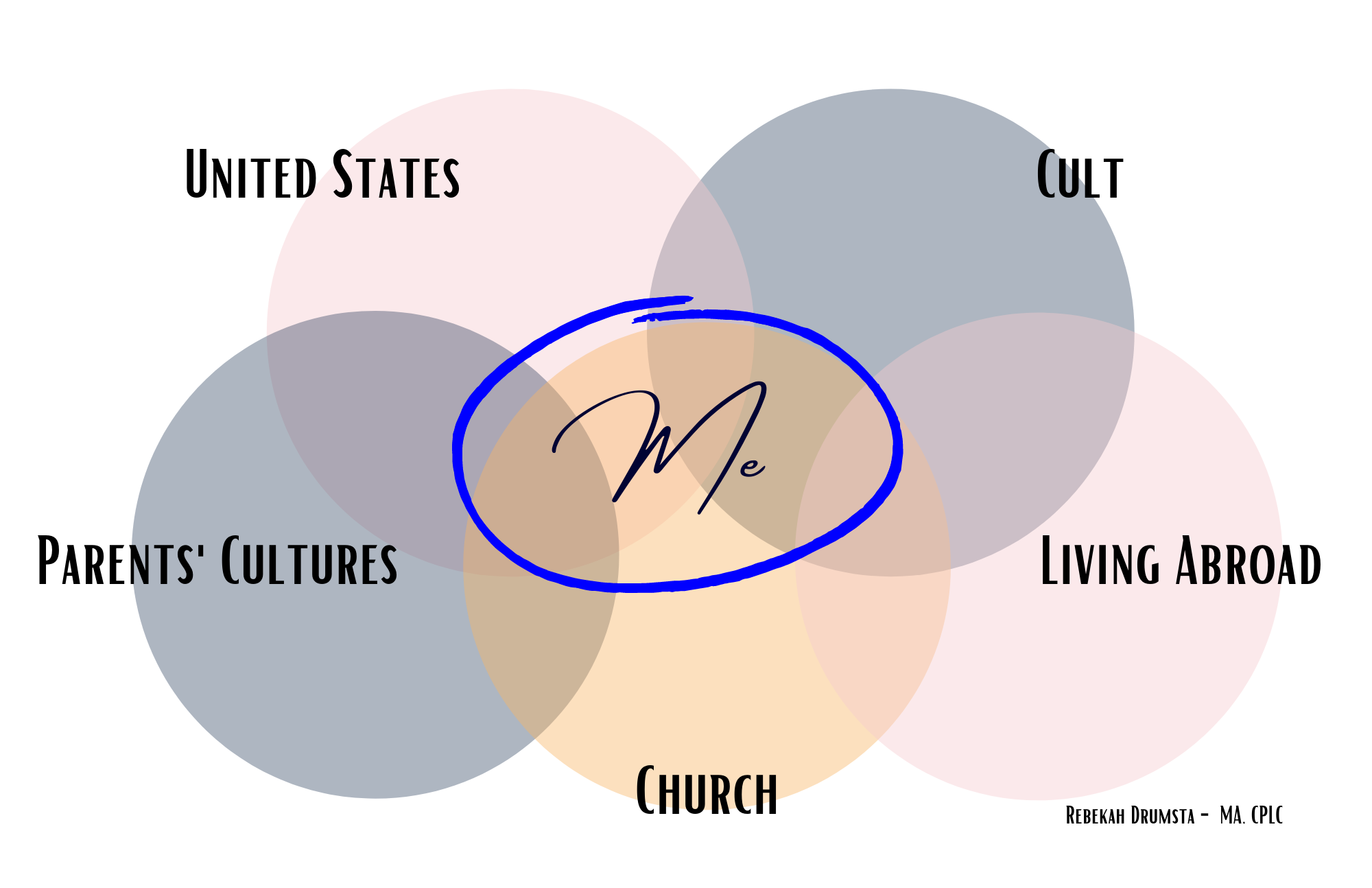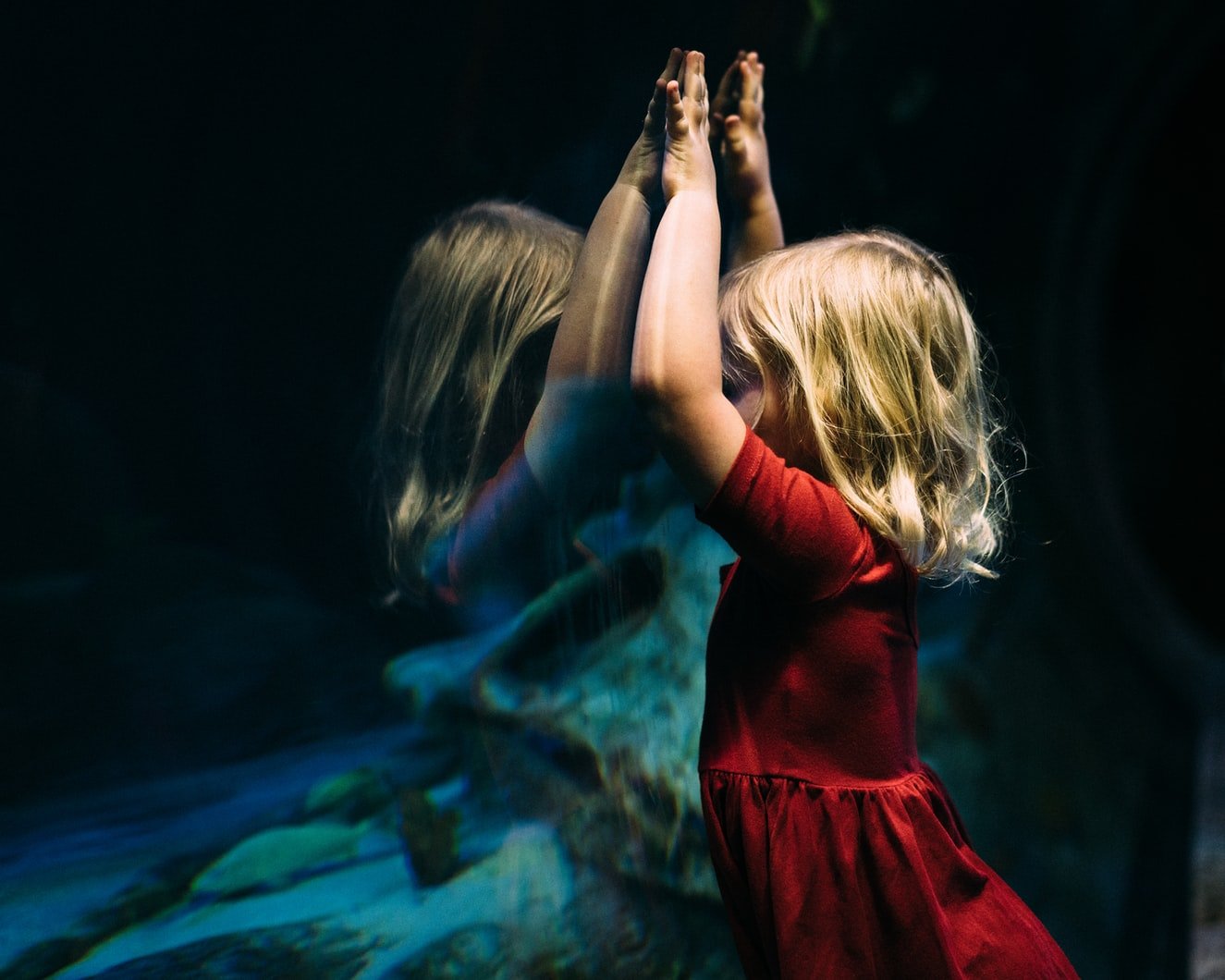“They listed everyone but me!” - Third Culture Kids and the High-Demand Religion or Cult Connection
Did you grow up in a high-demand religion or a cult? Have you ever felt like an outsider to life and couldn’t put into words exactly why? If so, you are not alone and perhaps, what I explain in this article will resonate with you.
One day as I was having a conversation about my childhood (and subsequent religious trauma recovery journey) with a dear friend of mine, Dr. Paulette Bethel, she suddenly said, “Rebekah, you’re a TCK!” This expression was new to me so I asked her to explain. My friend has done extensive work professionally with Third Culture Kids and even raised a handful of them herself. She could not help but hear the similarities in many of my stories to what former clients and colleagues had shared.
As I started to look into what it meant to be a Third Culture Kid, I saw she was right. This exploration even landed me in a Clubhouse chat with Ruth Van Reken herself - the woman who wrote the actual book on this topic. But the more I dug around the available TCK information, my label if you will, the part that included me, it never came up.
They listed everyone but me.
What is a Third Culture Kid?
A common definition of a TCK is someone who spent the majority of their growing up or developmental years outside of the parent’s culture. This definition has been inclusive of those raised in the military, as missionaries, with parents whose jobs take them to another country, immigrants, international adoptees and more such as laid out in this chart by Ruth Van Reken. The term, Cross-Cultural Kid, is often be used interchangeably.
(From what I’ve found online, those in the Christian missionary world have identified TCK as a reality but address it in a glib manner. One Christian college even offers to become home for those Third Culture and Missionary Kids who so often ask themselves, “Where is home?”)
What makes me (and maybe you) a TCK?
Please see the illustration on the right to help understand my position.
I was raised inside the United States, inside a religious cult, inside a Christian fundamentalist church, I lived internationally before the age of twenty and then yes, I was raised outside of my own parent’s family culture. This lead to a complex and confusing understanding of life and the world.
My parents were not raised in the fundamentalist denomination or religious cult in which I was raised. They chose to take our family there. Also, we were sheltered from the influence of extended family.
I submit to you that there is another bubble that needs added to your third culture kid flow chart. “Children raised in high-demand religious or cult environments.” This is a group of people who have been culturally marginalized and overlooked in the mental health profession far too long.
For the remainder of this article, I would like to focus on the primary areas which make a child who grew up in a high-demand religious or cult environment a Third Culture Kid.
Please refer to the illustration on the left.
Religion, church attendance or a home where faith is encouraged has long been noted to be a great influence on a child’s life. But what is missing from recognition is when that faith is so devout a child does not know that there is a life outside of their spiritual code, it becomes all encompassing, every minutia - family life, education from infanthood through college, faith practices, view of the world at large, relationships, politial views, professions and work all revolve around their system - or evolves into a cult. This lived experienced morphs into its own sub-culture.
While moving from an extreme Orthodox Jewish cult member to your average college student is portrayed brilliantly in the Netflix show Unorthodox, the truth is that for most people growing up or living in a cult or high-demand faith is that from the outside they don’t appear so drastically different than typical society. But their version of reality is almost indescribably diffferent from everyone else.
Another viewable example is in M. Night Shyamalan’s movie, The Village, where inhabitants use phrases like, “Those we don’t speak of,” as they live in fear of the monsters who live outside their safe village. Horrific things happen to those who leave the confines of their community, proving one must stay with them, following the rules, to remain unharmed.
Common Traits of a Devout Religious or Cult TKC
Here are some of the things TKC with a high-control religious or cult upbringing may experience:
Identity struggles.
Words mean something different to you than other people, how the words are used or defined.
Fear of everyday things such as going to the movies, drinking a strong drink such as coffee, seeing billboards or advertisements with “inappropriate” pictures, touching someone of the opposite sex or having a conversation with them.
Overload of senses and experiences.
Can stumble into dangerous situations because of lack of knowledge or experience.
Cannot relate to peer experiences such as dating, high school or college life, hanging out with friends, TV shows or movies, your first kiss, driving a vehicle, etc.
Relationships can prove difficult - romantic, existing family, new friendships.
General sense that something is wrong with you.
Constantly searching to just fit in.
These observations are my own, and have been presented to several professionals including Ruth VanReken. for review. To date, my conclusions on this matter have been met with positive feedback and confirmation.
How does what I have suggested in this brief article sit with you? Are you also a survivor of a religious high-control or cult group?
I believe a deeper look needs to be taken into the experience of the child growing up in high-demand and cult environments. There is very little science behind that child’s development and what it looks like to become an adult who leaves behind that system.
My friend Dr. Gill Harvey has completed one of the only studies (at this time in 2023) on the ramifications of being raised in a fundamentalist religious lifestyle and offers a training for professionals.
In the meantime as we wait for mental health science and support to acknowledge this important yet seemingly unseen experience, childhood high-demaind religion and cult survivors will continue to speak up, share their stories and demand justice.
This article is not intended to treat or diagnose any condition.
Rebekah is not a licensed therapist or clinician. Any advice or opinions given on this site are strictly her own observation and insights based on personal experiences and study. It should in no way take the place of professional assistance.




